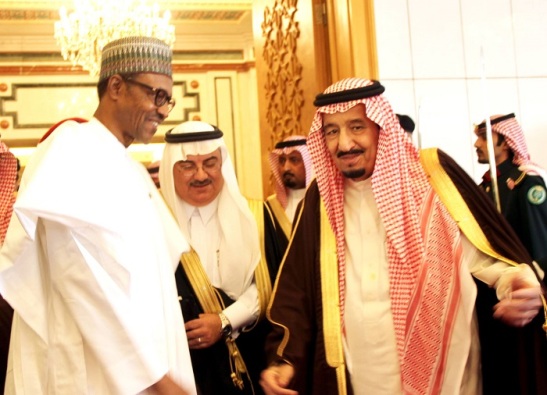Nigerians need to know more about the Islamic Coalition on terrorism

About two months ago, the Kingdom of Saudi Arabia announced the formation of a coalition of 34 Muslim countries to fight terrorism and in the words of the Saudi government, “a duty to protect the Islamic nation from the evils of all terrorist groups and organizations, whatever their sect and name, which wreak death and corruption on earth, and aim to terrorize the innocent.”
Nigeria was one of the countries listed as being part of this coalition, which will include a joints operation centre based in Riyadh to coordinate and support military operations.
Quite naturally, this announcement became a talking point among Nigerians as our joining a military coalition, especially one based on religious affiliations, was all too reminiscent of when General Ibrahim Babangida as Head of State secretly upgraded our membership status of the Organization of Islamic Countries (OIC) from observer status to full membership, an issue which is still a sore point in the intersection of religion and power in Nigeria.
However, the situation has gotten more confusing: while presidential spokesman, Garba Shehu said that President Muhammadu Buhari turned down the offer to join the coalition during a bilateral meeting with the King of Saudi Arabia, President Buhari contradicted him by saying Nigeria will join the coalition in an interview with Al-Jazeera on Sunday.
Apparently, Nigeria’s inclusion in the coalition was done without our consent, as it was for Malaysia which has flatly rejected the coalition, for Indonesia which has expressed skepticism about it, and for Pakistan, which found out about its inclusion in the news. This is complete disregard to diplomatic protocol.
While the constitution is not entirely clear on the need for parliamentary approval – Section 5(5) requires the President to seek the consent of the Senate within 7 days of members of the armed forces being deployed outside Nigeria for limited combat duty, section 12 prohibits any treaty between Nigeria and any other country without the enactment of the treaty by law by the National Assembly – this is solely due to the opaque nature of this coalition.
But even beyond that, it is important that Nigerians have a debate about this coalition before we become a part of it.
We have to start by finding out what is the nature of the coalition, the terms guiding it and the nature of our contributions to it. Is it going to be like the North Atlantic Treaty Organization (NATO), which has a policy that an attack on any one member mandates that all other members defend it?
We should also ask what we expect to benefit from it. Although Nigeria is grappling with Islamic extremism in the form of Boko Haram, we should not be too eager to join a coalition that does not offer us concrete assistance in defeating the terrorist group.
This is especially important in the light of the statement by Deputy Crown Prince Mohammed bin Salman said the coalition of 34 Muslim states would fight the scourge in Iraq, Syria, Libya, Egypt and Afghanistan. The omission of African countries battling with Islamic extremism – from Nigeria to Mali to Somalia – and yet including same African countries in the coalition is quite an oddity.
Nigeria should also be careful not to find itself caught in the internecine, age-old feud between Saudi Arabia and Iran – the non-inclusion of countries in the Middle East battling with terrorism like Iraq and Syria, and Iran itself, all Shia majority nations, raises more questions than answers and makes the coalition look like it will be to Saudi Arabia what NATO was to the United States as a bulwark against Soviet aggression.
Such a debate must also take into cognizance the testy relations between Christians and Muslims within Nigeria.
Nigerian Christians are quick to point out the secretive upgrading of Nigeria’s membership in the OIC by General Babangida as part of a grand plan to have Nigeria ‘Islamized’. As such, President Buhari’s rather dismissive answer to being asked about the concerns of Nigerian Christians to the coalition, saying they should go fight the terrorists by themselves, is far from satisfactory.
How Nigeria’s leadership carries on with the dialogue regarding our membership of this coalition or otherwise could set the tone for either a reduction in tensions between Christians and Muslims, or it could worsen matters.
Every opinion must matter, and we must not shy away from having exhaustive debates regarding this issue. It is necessary to emphasize this because issues of religion are sensitive, and many Nigerians will rather skirt around the issue than say their minds about it.
This has to be an exception as it concerns not just our internal security, but potentially our territorial integrity.
It is important that the decision-makers with respect to this coalition ensure that Nigeria’s interest comes first – its unity and its progress.
